Most important festivals in Lima
Lima, the capital of Peru, has a culture full of traditions and festivities influenced by its pre-Hispanic and colonial past. In these festivals the religious faith of its inhabitants is appreciated. Also the exquisite local gastronomy. And, of course, the joy and music of the people of Lima. Get to know the calendar of the most important festivals in the ‘City of Kings’.
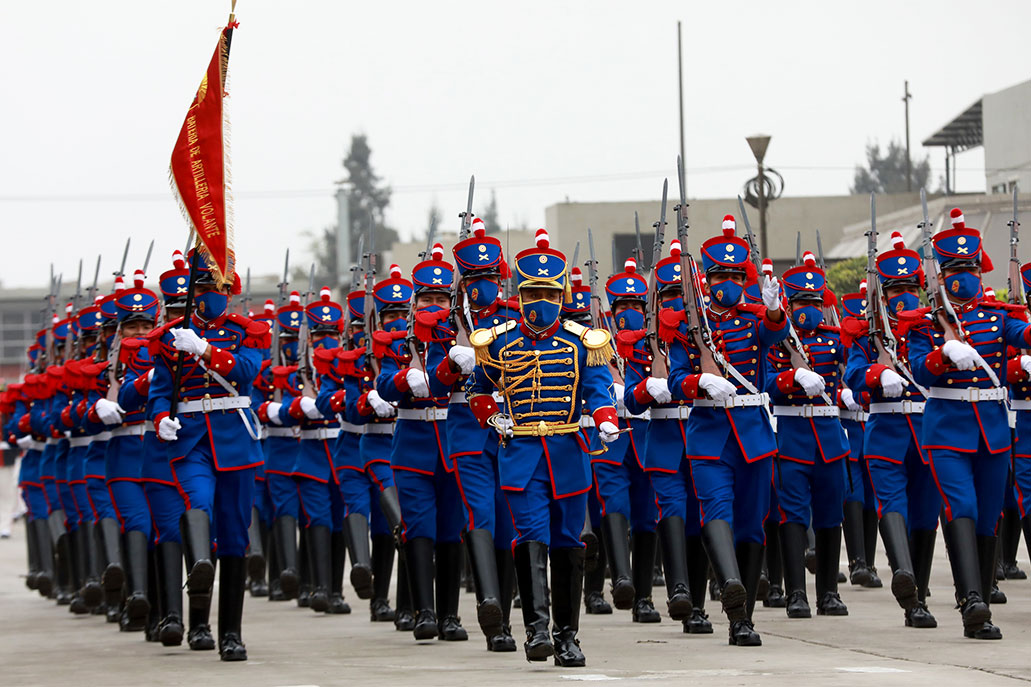
Content
New Year
On January 1, Lima wakes up hungover. That morning and the night before, the residents celebrated the arrival of the new year with fireworks, baked turkeys (or pigs or, if the economy is scarce, just chicken) as well as alcoholic beverages and lots of dancing.
In Lima and the rest of Peru it is customary to wear yellow. In search of good luck for the coming year, there is no shortage of polo shirts, hats and even underwear in this color. On the first day of the year, the beaches are crowded with vacationers. It is summer in the city and the residents seek to heal the wounds of the festivities by the sea.
- Date: January 1st.
- Place: All of Lima (especially on the southern beaches of the city).
Carnivals
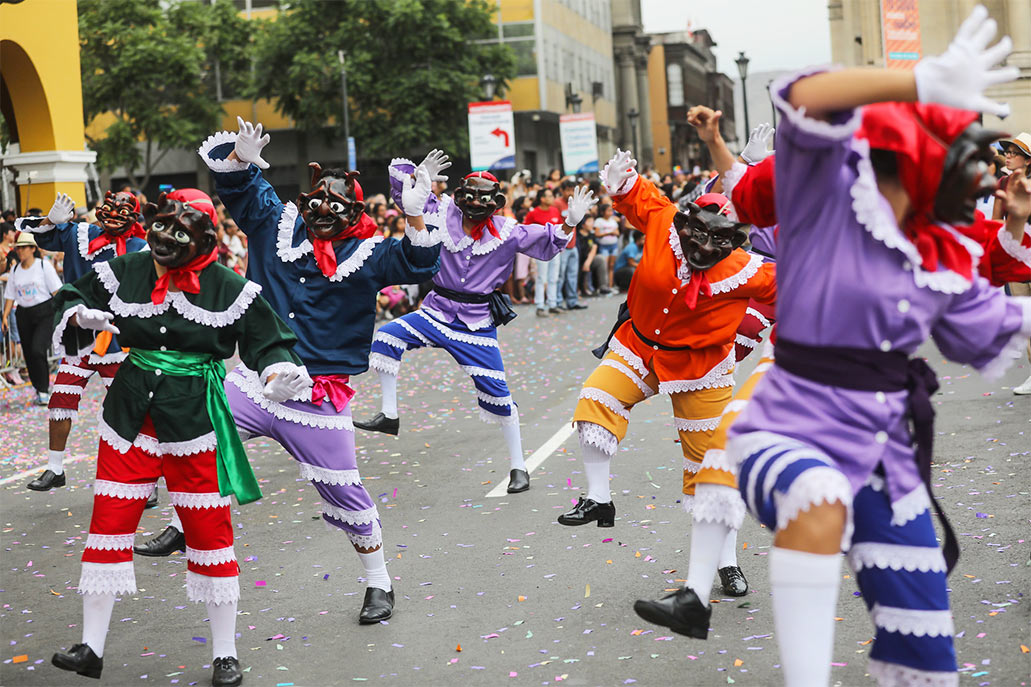
The carnivals acquire more excitement in the mountains and jungle of Peru. However, in Lima there are certain districts and provinces where carnivals are colorful and colorful. In the tourist district of Miraflores or in Barranco there are parades with floats. In the Andean provinces like Huarochirí there are yunzas, dances and a lot of music.
All over the city people (especially young people) play with water. Men’s groups refresh women and vice versa. Games are held every Sunday in February. On these dates an excellent option is to enjoy the heat on the southern beaches of the city.
- Date: Every Sunday in February.
- Location: Throughout the city.
Harvest festival
The grape harvest festival celebrates the harvest of grapes on the Peruvian coast. It is especially famous in the city of Ica, 304 kilometers by road from Lima. In the tourist town of Lunahuaná, within the department of Lima, a celebration takes place with aspects similar to those of Ica.
In Lunahuaná the harvest festival is carried out with dances and dances as well as shows with live orchestras. This tourist destination also offers a series of adventure sports where boating stands out. In the city of Lima, the district of Surco also offers wine and pisco fairs worthy of admiration.
- Date: First or second week of March (variable date).
- Place: Lunahuaná, Cañete and Surco.
Anniversary of Lima
On January 18, 1535 Francisco Pizarro founded the city of Lima in the Main Square. Since then on that date every year one more anniversary of the so-called ‘City of Kings’ is celebrated. The party takes place mainly in the historic center, a few steps from the Government Palace and the Municipal Palace.
The city’s anniversary is characterized by free music shows. In addition, gastronomic fairs, comparsas, civic events and various artistic shows are usually organized. Lima’s desserts such as anticuchos, picarones, mazamorras and nougat are unavoidable.
- Date: January 18.
- Place: Historic center of the city of Lima.
Paso horse fair
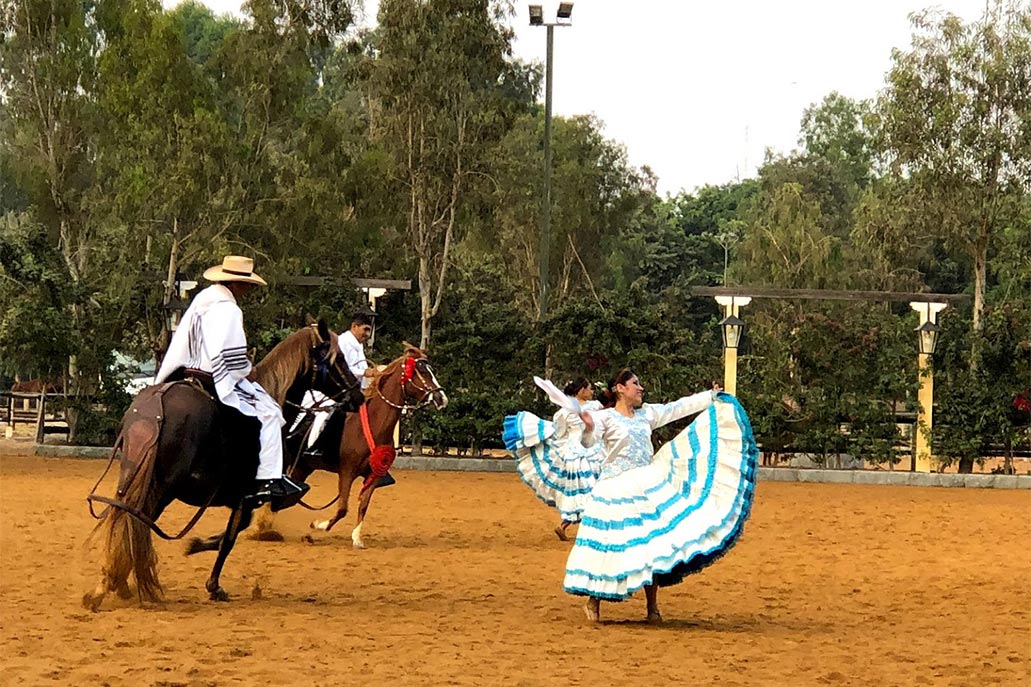
The Peruvian horse ‘passing through’ is declared a ‘horse breed of Peru’ by the INC (National Institute of Culture). Indeed, this breed is native to Peru, descended from Spanish equines but adapted to the Peruvian coastal geography. To honor this cultural heritage, every third Sunday in April its day is celebrated.
The main characteristic of the horse is its gait ‘step by step’ which gives it a unique elegant appearance. This specimen is raised on the Mamacona farm, in the Lurín district. On the day of his homage, festivities are organized with pisco and northern marinera. There are even dance performances between the horse, the chalán (rider) and graceful dancers.
- Date: Every third Sunday in April.
- Place: Mamacona (in the Lurín district, 40 kilometers from the city center).
National Holidays
On July 28, 1821, General José San Martín proclaimed the Independence of Peru in the Main Square. Since then, each year on that date, Peruvians fly red and white flags on the roofs of their homes. In Lima, being the capital of the country, the main civic events are held.
On July 28, the President of Peru makes a speech in the Congress of the Republic. The following day the population flocks to Avenue Brasil to appreciate the ‘Great Parade and Military Parade’. At the end of the month, the circus season begins throughout the city with shows full of magic and joy. In addition, every fourth Sunday in July the ‘Day of Pisco’ is celebrated. For all these reasons, July is a good time to get to know Lima.
- Date: July 28 and 29.
- Location: Throughout the city, especially in the historic center of Lima.
Festivity in tribute to Santa Rosa de Lima
Isabel Flores de Oliva was born in Lima on April 20, 1586. On April 12, 1671, Pope Clement X canonized her as Saint Rose of Lima. Since 1727, Peruvians honor her on August 30 (the day closest to her death) with displays of faith. Today Santa Rosa de Lima is considered the patron saint of the National Police of Peru.
The celebration is characterized by the thousands of letters that the ‘Well of Desires’ receives at the Santa Rosa Convent (on Tacna Avenue in downtown Lima). In them the parishioners write their requests and wishes that, according to popular belief, will be fulfilled by the miracle of the saint.
- Date: Every August 30.
- Place: Convent of Santa Rosa de Lima (on Tacna avenue in the city center).
Festivity in tribute to the Señor de los Milagros
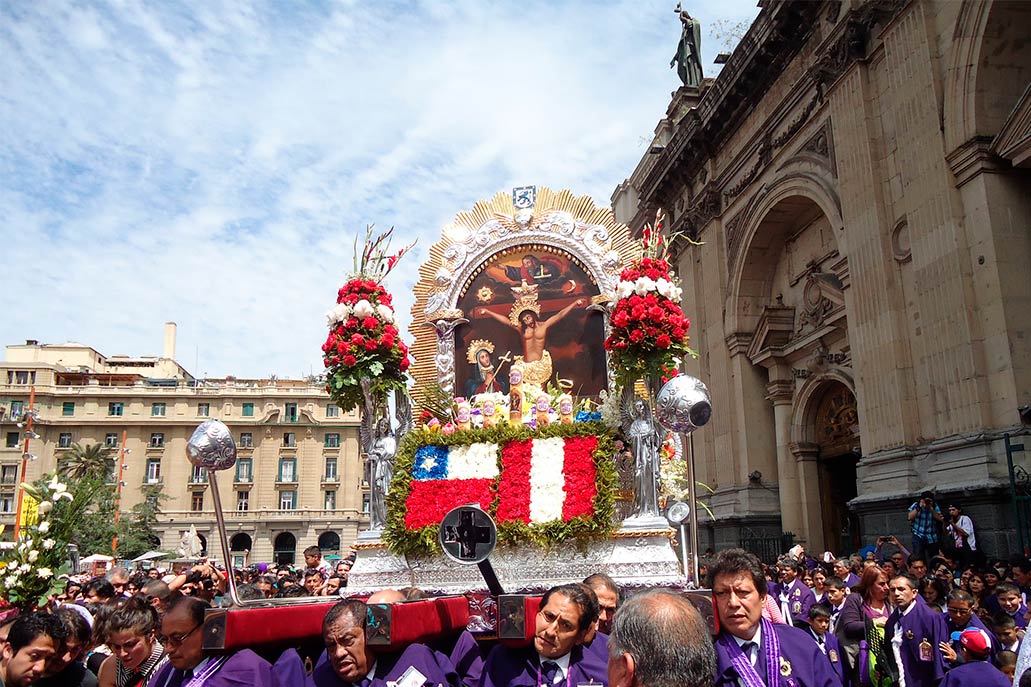
In October, purple colors the spirits of Lima’s people. For samples of faith and devotion it is the most important religious festival in all of Peru. His faithful, especially women, usually dress in purple robes. It is that the image of this crucified brown Jesus Christ is related to the violet of penance.
The main processions take place on October 18, 19 and 28. Tokens of faith include the faithful advancing on their knees or promising all kinds of penance in exchange for a miracle. The gastronomic fairs are massive throughout the city. The church of Las Nazarenas (on Tacna avenue) is where the image of ‘Cristo Moreno’ rests the rest of the year.
- Date: throughout October (main processions on October 18, 19 and 28).
- Location: Throughout the city, especially in the historic center of Lima.
Day of the Creole song
While on October 31 the Western world (mainly Anglo-Saxon) usually celebrate Halloween, in the peñas of Lima the ‘Day of the Creole song’ is celebrated. This music, a fusion of the Viennese waltz, the Spanish jota and the Afro-Peruvian influence, stands out for its poetic lyrics and musical elegance.
The celebration was established in 1944 in full effervescence of this musical genre whose most acclaimed representatives are: Felipe Pinglo Alva, Chabuca Granda, Arturo ‘El Zambo’ Cavero, Lucha Reyes, Óscar Avilés, Eva Ayllón and more. The celebrations are in the popular ‘peñas’ of the city. Includes a dose of pisco, cajon and a lot of joy.
- Date: Every October 31st.
- Place: In the ‘peñas’ of the city of Lima.
Christmas
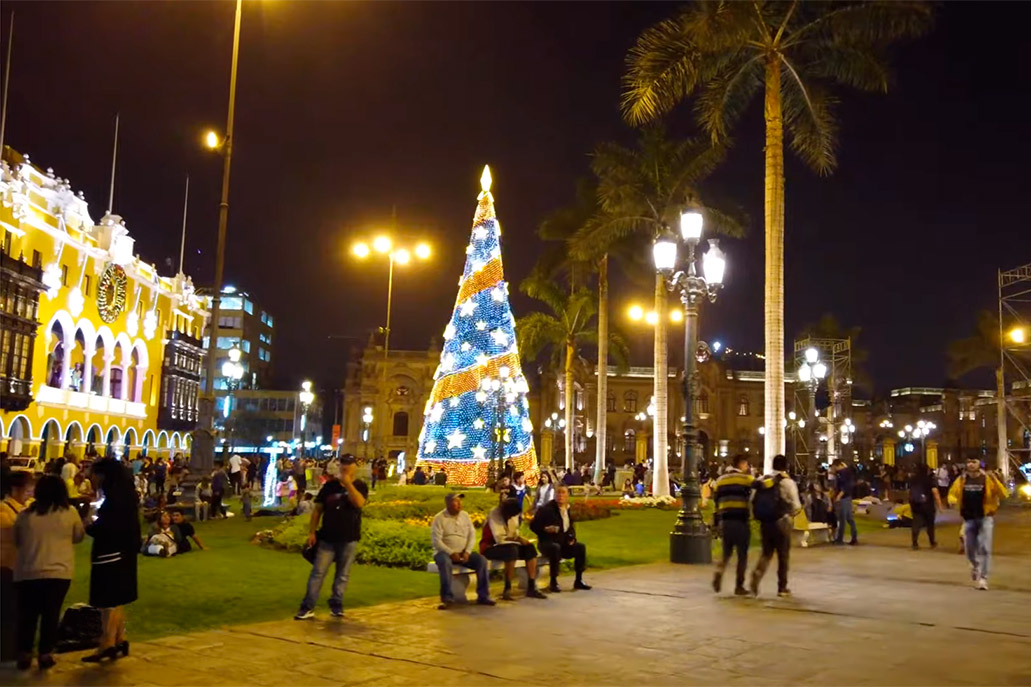
Christmas in Lima is celebrated in the western way with special dinners, gifts, trees and multicolored lights. Perhaps one of the main characteristics is waiting for midnight on December 24 to taste the dinner and open the gifts. Of course, in addition to panettone and chocolate, local drinks such as pisco are distinguished.
In Lima and other regions of Peru it is also customary to go to mass on December 24 at night, in the famous ‘mass of the rooster’. The city center is decked out with tall Christmas trees. At midnight it is celebrated with fireworks. Then the families get together and share a moment of reflection and union.
- Date: December 25th.
- Place: The entire city of Lima.
By Machupicchu Terra – Last updated, August 28, 2023